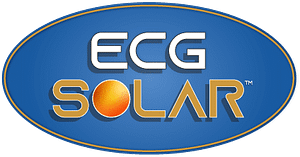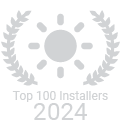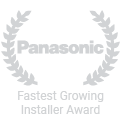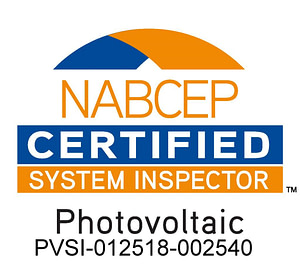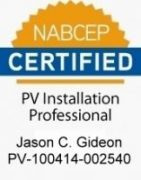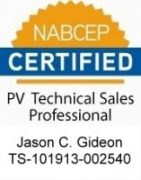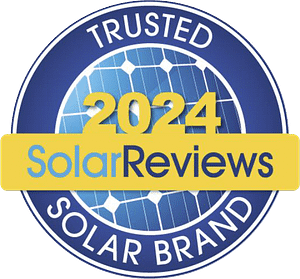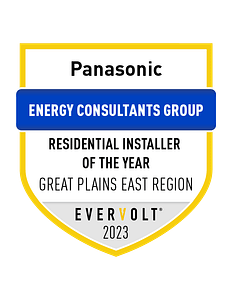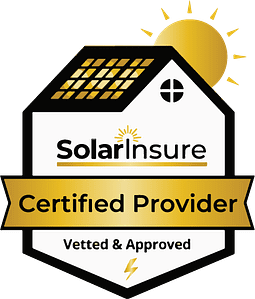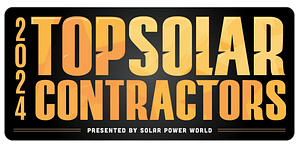What Does Solar Panel Maintenance Look Like?
Top-of-the-Line Solar Panel Services From Professional Solar Panel Installers in Iowa
One of the more intimidating aspects of owning a solar panel system is keeping the array maintained. Both home and business owners may have questions, like:
- How much solar panel maintenance is required to keep them healthy?
- How do you clean them?
- Should they be checked routinely, or can they be left alone for long periods of time?
These are all understandable and perfectly reasonable questions for anyone who either has or is thinking of installing, a solar energy system to ask. The quick and simple answer to these maintenance questions and others is as follows: in reality, solar panels require little upkeep in order to function properly throughout their lifespan. One of the only real regular “tune-ups” they need is a cleaning now and again to clear out debris buildup—dirt, leaves, other miscellaneous blockages—in order to make sure they’re getting as much sun as possible.
There is one significant sign of solar panel maintenance being needed—a gradual, or sudden decline, in power output. If this problem isn’t resolved by cleaning the panels, there could be an internal issue with the array’s components. An inspection and possible repair may be required to bring the system back up to full power, but no worries, with our Panasonic line all of the equipment is covered for 25 years, parts, labor, truck roll fees and shipping!
For an extensive breakdown of solar panel maintenance, please refer to the National Renewable Energy Laboratory’s best practices manual, located here.
Operations & Maintenance Plans
Ground vs. Roof Solar Panels
Ground-Mounted Solar Panel Systems
Pros:
- Easy access
- Easy cleaning
- Better overall racking
- Produces slightly more energy
- No need to remove the panels for roof repair
Cons:
- Installation is more labor-intensive
- Installation is more expensive
- Requires more parts and pieces
- Permitting process is more expensive
- Takes up real estate
- Not aesthetically pleasing to everyone
Roof-Mounted Solar Panel Systems
Pros:
- Less expensive
- Requires fewer materials to install
- Installation labor cost is lower
- Utilizes unused space
- Easier to permit
Cons:
- Hard to access–especially if your roof is steep
- Harder to troubleshoot errors
- Higher panel temperatures mean lower panel output
- Space and zoning constraints limit the size of the system
- Can be a hassle if you need to replace the roof within the panel’s lifetime (might install the system twice)
Maintenance Quote
Schedule a solar consultation today! Click here to get started.
Solar Panel Cleaning
Solar panel cleaning isn’t that difficult for the most part, and can often be done by the home or business owners themselves.
One of the biggest factors in terms of solar panel debris buildup is the pitch—the angle—of the panels themselves. This is why getting a proper site assessment from solar installers you can trust is so important to the overall lifetime health of the system.
A common cleaning issue for panels is dust and dirt, referred to as soiling. These particulates can be cleared away with a garden hose more often than not; in the case of larger systems/arrays, a different cleaning tool may be needed in order to fully cover the area.
Sometimes, there are other substances and messes that can develop on solar panels. In these situations, where a good scrubbing is required, it’s advised that the system owner be gentle with the panels—forceful cleaning could potentially damage the solar cells and lead to lessened energy output. Never use a power washer and always use deionized water to prevent water spots from etching the glass and actually creating a rough surface for even more soiling to “stick” to glass.
If the mess or obstruction on the panels is more serious than a cleaning or scrubbing will get out, it’s advised that the system owner contact their local solar panel installers/repairmen in order to get proper maintenance services.
You can clean the panels by following these steps:
- Pick an early morning or early evening, never clean modules in the sun at temperatures above 75F
- Setup the appropriate safety gear and PPE
- Setup the deionized water treatment system and correct cleaning instruments approved for solar panels
- Apply water to modules starting at the top and beginning cleaning the modules by physical contact
- Rinse the modules thoroughly
- Allow panels to air dry
Note: Never use power washer as this will potentially damage the module and void warranty.
Across the state of Iowa, ECG Solar™ is Iowa’s Premier Solar Provider™. Since our founding, we’ve been committed to providing the best service and products. And today, we continue this tradition with high-quality solar storage batteries from Enphase™, solar panels from Premium Tier 1 Panasonic™ Panels, and standby generators from Kohler™.
Learn more about the benefits of turning to ECG Solar™ for solar panel installation. We’re proud to serve home and business owners in Cedar Rapids and communities throughout Iowa.
